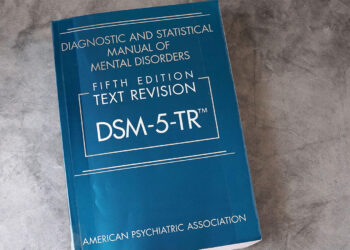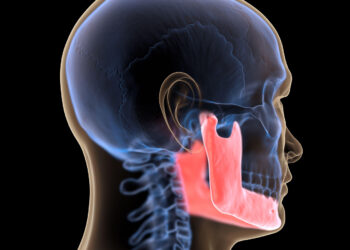Monitoring absolute neutrophil count (ANC) levels beyond 2 years of clozapine treatment is no longer necessary, new international guidelines stated.
While low ANC levels — associated with severe neutropenia — pose a significant risk early in treatment, evidence shows that the risk drops substantially over time. Still, many patients continue to undergo routine blood tests well beyond the high-risk period, lead guideline author Dan Siskind, MD, PhD, professor of psychiatry, The University of Queensland, Brisbane, Australia, told Medscape Medical News.
“What we’re saying is that after 2 years of monitoring, you can stop doing blood tests to monitor ANC levels, which is a massive change,” he added.
The expert panel also provides detailed suggestions for monitoring other adverse drug reactions (ADRs) related to clozapine, including constipation and sialorrhea. And the group recommends an ANC of 1.0 × 109 cells/L as a threshold at which to consider stopping clozapine.
The guidelines were published online on July 2, 2025 in Lancet Psychiatry.
An Underutilized Treatment
Clozapine is the only FDA-approved drug for treatment-resistant schizophrenia. An estimated 814,000 to 1.2 million Americans have this condition.
Although clozapine is widely regarded as a superior antipsychotic, many clinicians remain hesitant to prescribe it due to concerns about ADRs — most notably, severe neutropenia, in which dangerously low neutrophil levels increase the risk for infection and even death. Despite estimates that 25%-30% of Americans with schizophrenia could benefit from clozapine, only about 4% receive it.
The concern over severe neutropenia has led to stringent ANC monitoring protocols in some jurisdictions. Until recently, a risk evaluation and mitigation strategies (REMS) program in the US required physicians and pharmacists to provide documentation of a patient’s ANC.
However, after lobbying by relevant professional organizations including the American Psychiatric Association (APA), which argued the program poses unnecessary barriers to accessing a potentially life-saving medication, the FDA made the decision to discontinue the REMS program.
Some experts insist the risk for severe neutropenia is low in patients taking clozapine. As previously reported by Medscape Medical News a study presented at the 2024 APA annual meeting showed the risk for moderate-to-severe neutropenia is low to minimal in patients with treatment-resistant schizophrenia.
Siskind agreed. He points to other research showing the rate of severe neutropenia at initiation of clozapine is around 0.9%, but after peaking, the risk then “drops over time” and after about 18 weeks, “it’s very low, and after about 2 years, it’s negligible.”
Yet patients who have been on clozapine for 10 years still receive blood tests every 4 weeks. “We felt that’s probably low value healthcare that creates impediments to people on clozapine,” said Siskind.
No Current Consensus
The guideline authors noted there’s currently no international consensus on ANC thresholds for considering clozapine cessation. In some jurisdictions, an ANC of fewer than about 2.0 × 109 cells/L is the threshold but in other areas, the threshold is 1.5 × 109 cells/L. And when the REMS program was initiated, it set a lower ANC threshold (1.0 × 109 cells/L), which is in-line with that commonly used in hematology.
“What we’re calling for is a global consensus; there should be one threshold,” said Siskind.
Aside from neutropenia, there is a host of other clozapine-related ADRs, many of which are under-reported and some can be lethal.
The consensus guidelines were developed using a global Delphi process. A steering committee — including a hematologist with expertise in clozapine-associated severe neutropenia — designed a questionnaire focused on ANC and ADR monitoring.
The questionnaire was distributed to an international expert panel comprising psychiatrists and pharmacists. Recommendations were formulated based on their responses, with consensus defined as at least 75% agreement.
The experts developed a clozapine monitoring algorithm that includes:
- Weekly ANC monitoring for the first 18 weeks after initiation
- Monthly monitoring from week 19 through year 2
- Annual complete blood counts thereafter to screen for hematologic malignancies
The algorithm includes a recommended ANC cessation threshold of 1.0 × 109 cells/L — or 0.5 × 109 cells/L for individuals with benign ethnic neutropenia who are Duffy antigen receptor for chemokines-null.
In addition to clozapine, the new guidance advises clinicians to consider other potential causes of a low ANC, said Siskind. “If it’s 2 weeks after starting clozapine and there’s a sudden, precipitous drop, it’s likely related to the medication,” he explained. “But if it’s 18 months after initiation and you see a drop in neutrophil count, it’s probably due to something else — and worth investigating.”
Other causes of transient neutropenia could be chemotherapy treatment or a concomitant infection, he added.
Side Effect Checklist
Panel members developed a detailed checklist for regular and comprehensive ADR monitoring. The checklist includes pharmacological and nonpharmacological recommendations for each ADR where present.
For example, in the category of constipation, which Siskind said is “the number one cause of mortality” in patients taking clozapine, the experts suggest asking patients about bowel movement frequency and presence of blood and pain, and using the Bristol Stool Chart to determine if there’s a health issue. Given the high prevalence of gastrointestinal hypomotility, prophylactic laxatives are recommended, the panel said.
Sialorrhea occurs in up to 92% of patients taking clozapine and this can cause pneumonia, which is the second highest cause of death in people on clozapine, said Siskind. Here, the panel noted pharmacological strategies could include adding amisulpride or ipratropium sublingual spray while chewing sugar-free gum or placing a towel over the pillow when sleeping.
Panel members also provided management guidelines for weight gain and metabolic syndrome, gastro-esophageal reflux, sedation, sleep apnea, nocturnal enuresis and urinary incontinence, and tachycardia.
The panel stressed ADR monitoring should occur in partnership with primary care physicians.
Annual ECGs did not reach consensus for routine use, so the expert panel does not recommend them. They concluded that cardiomyopathy in clozapine patients is more likely related to comorbidities such as obesity, diabetes, and tachycardia.
Removing Barriers to an Optimal Treatment
Commenting on the new guidance for Medscape Medical News, Frederick Nucifora Jr, PhD, DO, associate professor, Department of Psychiatry, Johns Hopkins School of Medicine, and director of the clozapine clinic at Johns Hopkins Bayview Medical Center, Baltimore, said it is sensible, reasonable, and could help remove “troubling” barriers to accessing clozapine.
He welcomed the ADR monitoring suggestions as clozapine-related side effects can be life-threatening and are the reason patients don’t stay on the drug.
“There’s so much confusion around using clozapine and the side effects and how to address them that people don’t use the medicine, so it’s very useful to have something to help guide us,” he said.
He said it’s deeply unfortunate that clozapine remains underused, particularly given its status as the most effective treatment available. In his experience, the drug has had a transformative impact on his patients.
To increase physician comfort in prescribing clozapine, Nucifora suggests creating centers of excellence that could offer consultations on using the drug.
Also commenting for Medscape Medical News, Mahavir Agarwal, MD, PhD, associate professor, Department of Psychiatry, University of Toronto, Toronto, Ontario, Canada who heads a clozapine clinic at the Centre for Addiction at Mental Health (CAMH), said the paper’s “mini flow chart” to manage side effects is a valuable tool for physicians to review with patients.
He noted that the guideline authors are recognized leaders in the field and fully agrees that lifetime monitoring of ANC levels is likely unnecessary.
Clozapine has had a huge impact on patients at the CAMH clinic, said Agarwal.
“Among our clientele are people who work full–time in very, very high-capacity roles; we have scientists, teachers, all manner of professions, who are able to lead meaningful lives after they found clozapine.”
“Other antipsychotics may do that, but the beauty of clozapine is that it can completely turn life around for somebody who has not responded to other antipsychotics.”
Siskind received grant support from NHMRC. Nucifora had reported no related conflicts of interest. Agarwal reported receiving honoraria from HLS Therapeutics, which makes clozapine in Canada.
Source link : https://www.medscape.com/viewarticle/new-consensus-guidelines-clozapine-drop-anc-monitoring-after-2025a1000ijy?src=rss
Author :
Publish date : 2025-07-14 10:30:00
Copyright for syndicated content belongs to the linked Source.











